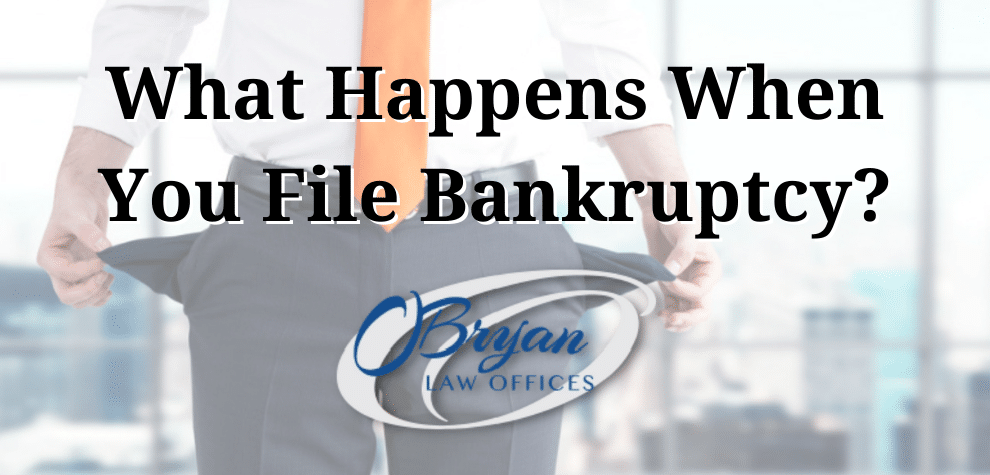Many people who are having financial difficulties wonder if bankruptcy would be beneficial to them. Bankruptcy can be a powerful remedy in gaining freedom from your debts. The following information is a brief synopsis of what happens when you file bankruptcy, as well as what it can and cannot do for you.
What Can Bankruptcy Do to Help You?
- You can wipe out any unsecured debts. Unsecured creditors are those that do not have a lien on any of your real or personal property. Unsecured debts include things such as credit cards, medical bills and back rent to name a few. Chapter 7 bankruptcy completely eliminates these types of debts.
- Eliminate certain liens. Once you file the appropriate motions, bankruptcy removes certain liens. One example is a judgment lien on real estate.
- Stop creditor harassment. Once you file for bankruptcy, the automatic stay goes into effect. This stay prohibits creditors from contacting you and continuing collection activities.
What Can’t Bankruptcy Do?
- Prevent repossession of items by a secured creditor. Bankruptcy discharges the underlying debt, but it does not remove the underlying lien. Therefore, if you do not continue to pay a secured debt (car loan, etc.) then the creditor may repossess the property. You would not be liable for any deficiency balance that may be left after the sale of the property.
- Wipe out student loans. For most people, their student loans will survive the bankruptcy. The only time student loan debt will be discharged in bankruptcy is if the debtor proves, through additional motions and court hearings, that repaying their student loans would create an “undue hardship”. The “undue hardship” standard is an incredibly tough standard to meet.
- Eliminate child support or maintenance obligations. Chapter 7 bankruptcy does not discharge domestic support obligations.
- Eliminate most tax debt. Many taxes are not dischargeable in bankruptcy. However, it is possible to eliminate your tax debt in bankruptcy if it is older and meets certain standards.
- Eliminate other non-dischargeable debts. The following are debts, other than those discussed above, that will not go away with a bankruptcy: debts from personal injury or death caused by driving while intoxicated, fines and penalties imposed from violating a law such as criminal restitution or traffic tickets.
Please be aware that a Chapter 13 bankruptcy is available to help in many situations that a Chapter 7 cannot. For more information on what happens when you file bankruptcy, please call O’Bryan Law Offices at 502-339-0222 to set up a free consultation with a Louisville bankruptcy attorney. We look forward to the opportunity to help you through this difficult time.








